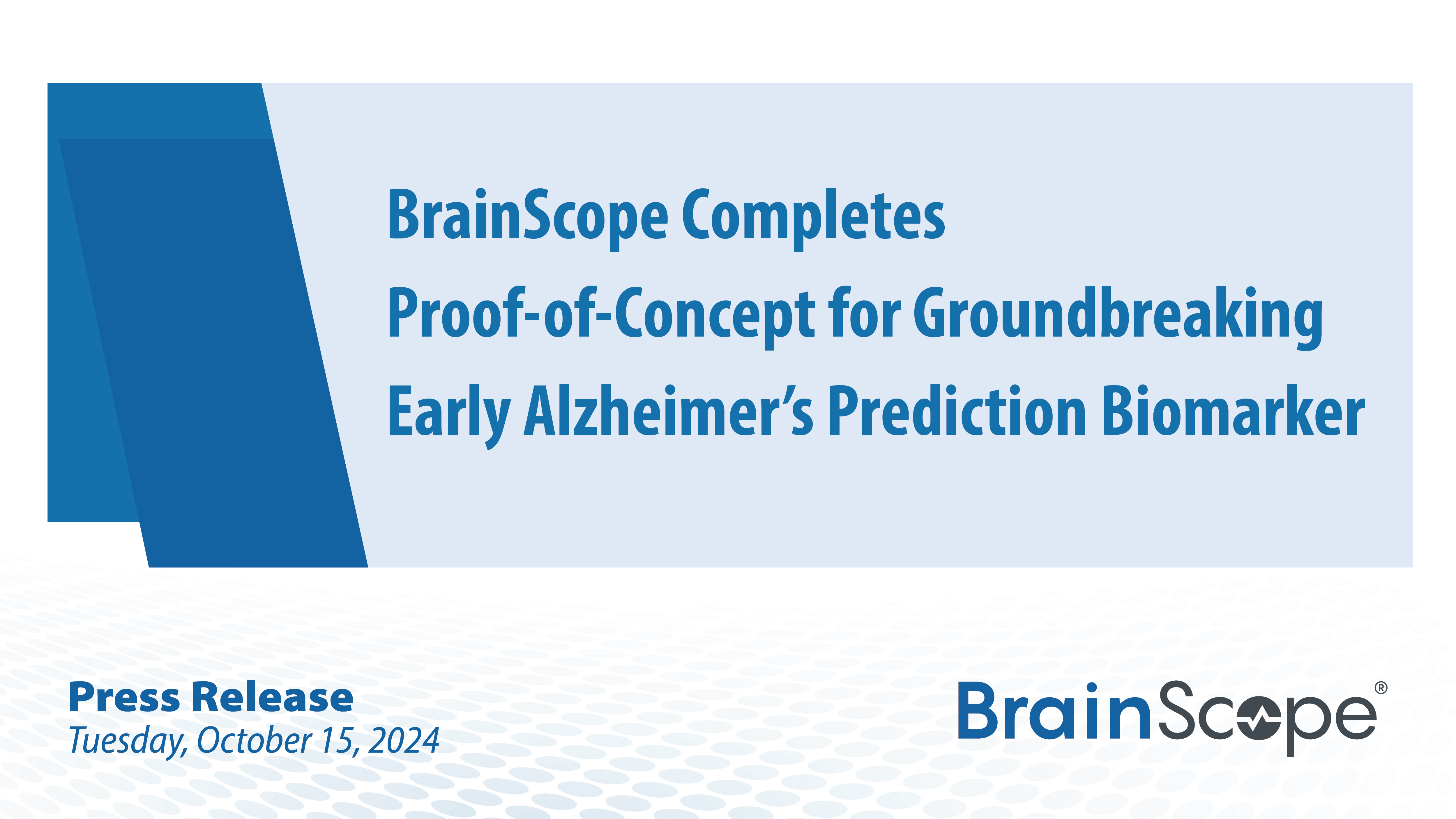Original Source
BrainScope Research Suggests Exposure to Repetitive Head Impacts is Reflected in Brain Electrical Activity Features Associated with Neurodegenerative Diseases
Rockville, MD (October 7, 2024) – In the aftermath of Miami Dolphins quarterback Tua Tagovailoa suffering another alarming concussion, debate has focused on whether he should retire or risk irreversible brain damage from subsequent concussions. This was closely followed by the announcement of NFL Hall of Famer Brett Favre’s diagnosis of Parkinson’s disease, causing growing concern about the long-term impact of repetitive head impacts in contact sports like football. Favre’s diagnosis sheds light on the increasing evidence linking repeated concussions to neurodegenerative diseases.
A study published in the Journal of Neurotrauma in February 2023 highlights how exposure to repetitive head impacts (RHI) is associated with long-term disturbances in brain function, and that earlier age of first exposure may be associated with more prominent changes. The study included a cohort of 90 former NFL players with self-reported cognitive, behavioral, and/or mood symptoms plus 25 healthy matched controls who were participants in the National Institutes of Health (NIH)-funded Diagnosing and Evaluating Traumatic Encephalopathy using Clinical Tests (DETECT) study, and an additional 44 healthy controls obtained from a concussion assessment study under a Department of Defense research contract to BrainScope (#W81XWH-14-C-1405). As part of the DETECT study researchers from the Boston University CTE Center completed multiple assessments, including collecting quantitative electroencephalogram (qEEG) data using BrainScope devices. The publication reported that using machine learning based on qEEG features, the NFL players were accurately differentiated from those without RHI, and included features which are known markers for neurodegenerative conditions such as Alzheimer’s Disease, Chronic Traumatic Encephalopathy (CTE) and Parkinson’s disease.
Research shows that returning to play before returning to normal brain function after a concussion, or suffering from multiple head impacts over a lifetime, can exacerbate the potentially debilitating long-term consequences of repeat concussive trauma to the brain. Early exposure to the physical demands of football contributed to many legendary NFL careers including Brett Favre’s, but it also subjected him to the risks associated with repeated head impacts from a young age. BrainScope’s research also indicated that players who began playing football at a younger age (before 12 years old) exhibited more severe changes in brain function than those who started at age 12 or older. The findings emphasize the need for more stringent concussion protocols in youth sports, including more objective concussion assessments, as early exposure and ineffective diagnostic tools may increase the risk of later developing neurological disorders.
Leslie S. Prichep, Ph.D., Chief Scientific Officer at BrainScope noted, “This study, in collaboration with researchers at Boston University, provided a unique population to investigate the impact of repeated head impacts. The results highlight the importance of understanding the long-term consequences of RHI on brain function and emphasize the need for objective markers of brain changes associated with RHI and for the ability to monitor such changes over time.”
Brett Favre’s recent disclosure of his Parkinson’s diagnosis comes at a time when sports leagues, including the NFL, are under increasing scrutiny over their handling of concussions. While rules have been introduced to reduce helmet-to-helmet collisions and improve concussion protocols, these measures may not be enough to prevent serious health consequences. Concussion protocols have proven to be highly subjective because they rely on clinical observation and self-reported symptoms. The good news is that objective assessment tools for concussion do exist.
Laurie Silver, CEO of BrainScope, added, “Brett Favre’s diagnosis with Parkinson’s disease puts a human face on a growing public health issue. We can no longer ignore the role of concussions in neurodegenerative diseases. It is essential that more objective assessment tools are incorporated into concussion protocols to protect current and future generations of athletes.”
About BrainScope
BrainScope is a medical neurotechnology company that is improving brain health by providing objective, diagnostic insights that enable better patient care. BrainScope is leading the way in the rapid and objective assessment of brain injury and disease, starting with mild traumatic brain injury (mTBI). The commercially available, FDA-cleared, non-invasive handheld device with integrated brain activity biomarkers helps clinicians quickly and confidently rule out the need for a head CT scan in patients with suspected mTBI while at the same time objectively assessing concussion in 15 minutes or less – demonstrated to save time, reduce radiation, improve patient throughput, and empower clinicians to provide patients the answers they are seeking. BrainScope’s well-validated technology has the potential to revolutionize brain health management, from acute care to drug discovery to consumer health. For more information, please visit www.brainscope.com.
